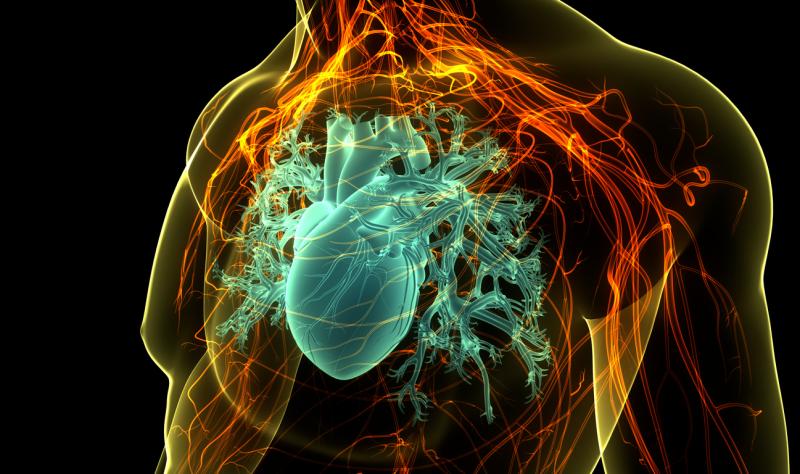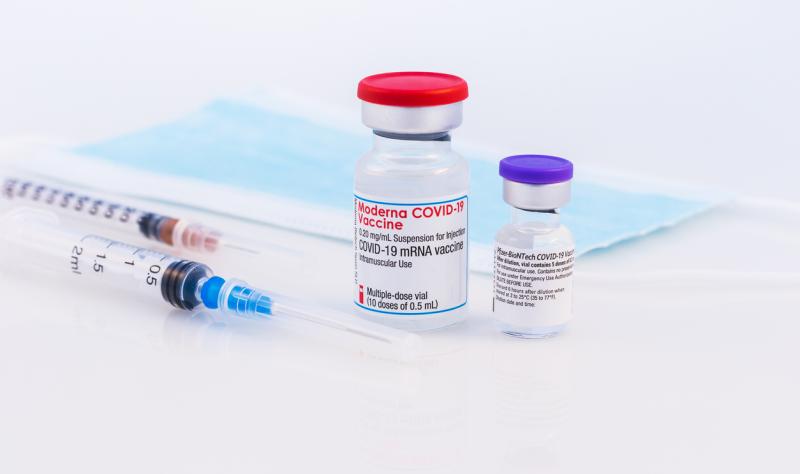Report: Cardiac risks must be considered when treating COVID-19
COVID-19 patients with cardiovascular symptoms, especially those with prior heart disease, should begin an exercise rehabilitation program 6 to 12 weeks after infection.


A new major report published in the European Journal of Preventive Cardiology suggests repeat COVID-19 vaccination may be necessary to mitigate the cardiovascular risk associated with SARS-CoV-2 infection.
The authors represent experts from across Europe, and said they authored the report to make concrete recommendations for prevention, rehabilitation, and long-term care for cardiovascular patients because both acute COVID-19 infection and long COVID have serious effects on the heart and blood vessels.
“As the initial public health messaging largely focused on pulmonary complications of COVID 19, many people with COVID-19 may not be aware of the increased cardiovascular risks associated to the disease,” the authors wrote.
With more than 1 billion global COVID-19 infections reported in the past 5 years, the authors said there was a need for clear clinical guidance on cardiovascular disease, including myocarditis (inflammation of the heart muscle), myocardial infarction (heart attack), heart failure, and thromboembolism (blockage caused by a blood clot) in an artery or vein.
Exercise rehab critical
“In the absence of clear evidence-based guidance, patients risk harmful treatments and clinicians face uncertainty,” said lead author Vassilios Vassiliou, MBBS, PhD, from University of East Anglia and Norfolk and Norwich University Hospital in England, in a press release from the European Society of Cardiology, which publishes the journal. “This statement [report] provides unified, practical recommendations for prevention, rehabilitation, and long-term care, while also identifying critical research gaps to ensure strategies continue to evolve with emerging evidence.”
The report says COVID-19 patients with cardiovascular symptoms, especially those with prior heart disease, should begin an exercise rehabilitation program 6 to 12 weeks after infection to strengthen the heart. Patients with long COVID—symptoms months after the initial infection—should undertake a stepwise program that reintroduces activity.
Careful watching and follow up is also needed for patients with COVID-19, who should be told they are at an increased risk for cardiovascular disease after the virus. “Patients hospitalized with COVID-19 exhibit an elevated risk of cardiovascular events lasting up to 3 years post-infection,” the authors wrote.
“Comprehensive prevention strategies should incorporate pharmacological and lifestyle interventions to address residual cardiovascular risks.”
More long-COVID clinics needed
The authors also addressed long COVID. They estimate 100 million people are currently living with long COVID globally, and about 5 million (5%) have cardiac long COVID, reporting angina (chest pain), breathlessness, arrhythmia (abnormal heart rhythm), heart failure, fatigue, and dizziness.
We need to ensure patients have equitable access to rehabilitation services.
In addition to cardiac rehabilitation, regular COVID-19 vaccination is important in both preventing severe COVID infections and reducing the chances of getting long COVID. The authors said the number of cardiac rehabilitation centers in Europe are too few given the increasing burden of long COVID.
“We need to ensure patients have equitable access to rehabilitation services, support primary prevention through vaccination and lifestyle programmes, and fund research into long Covid and cardiovascular outcomes,” said Vassiliou. “Health systems must be prepared for the ongoing burden, not just the acute infection.”



